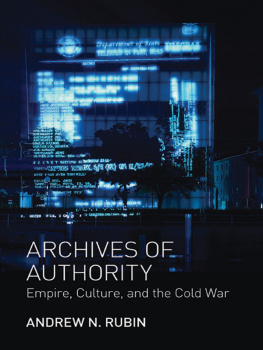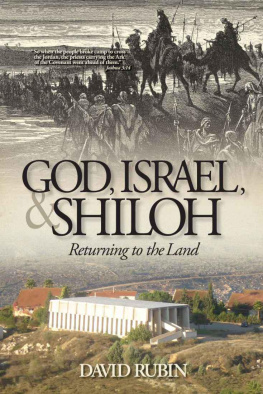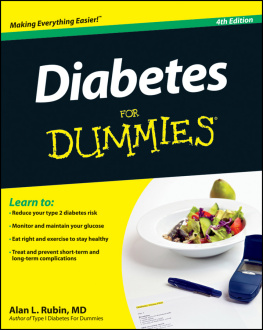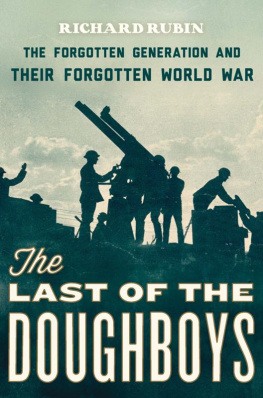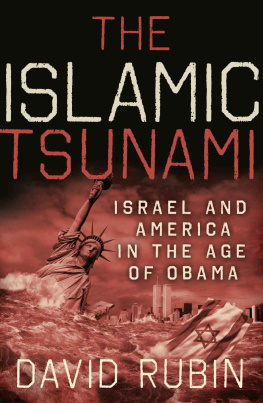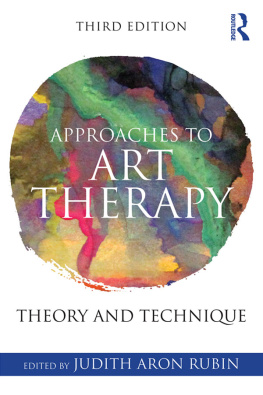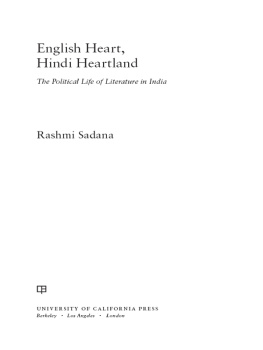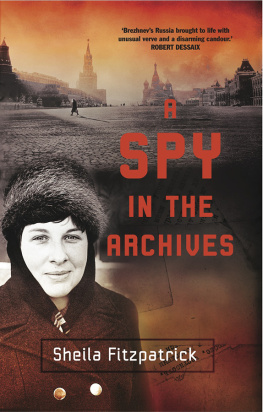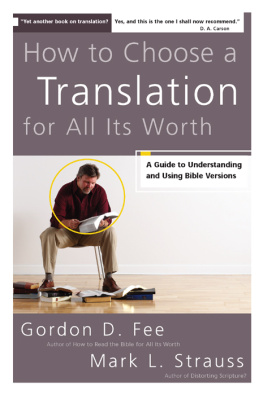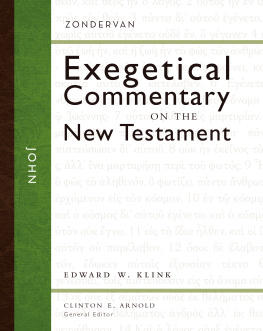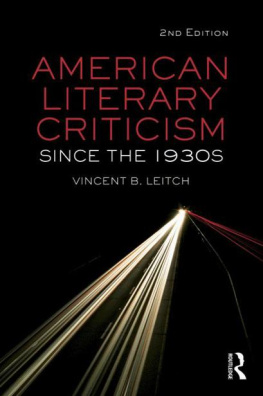Acknowledgments
THE IDEA OF WRITING A BOOK on the subject of the U.S. and British government's support and promotion of various writers, poets, and intellectuals abroad during the Cold War owes its origins to the encouragement of Edward W. Said. For their intellectual generosity and constructive criticism, I am grateful to George O'Brien, Mark McMorris, Carolyn Forch, Jonathan Arac, Ammiel Alcalay, Emily Apter, Norman Birnbaum, Eric Foner, Jean Franco, Andreas Huyssen, and Bruce Robbins. I owe special thanks to my editor, Hanne Winarsky, whose patient understanding made this book possible in many ways. I am also grateful to Emily Apter, whose support and criticism were entirely indispensable over the years. I also wish to thank Kelly Malloy for her thorough assistance, vigilance, and enthusiasm for the project. I am particularly grateful to Penn Szittya, Jason Rosenblatt, and Kathryn Temple for their support, encouragement, and understanding throughout my years at Georgetown. In the final stages, the manuscript benefited enormously from the meticulous attention of Mary Taveras, Elizabeth Gibbens, Amy Margolin, Brenda Werth, and especially Cathy Slovensky.
I have benefited from the kindness and generosity of many institutions. I especially wish to express my gratitude to the Lannan Foundation for their generous support, which gave me the time and space to write large portions of the manuscript. In particular, I would like to thank Patrick Lannan, Jo Chapman, Chris Abani, Dinaw Mengetsu, and Martha Jessup for their kindness and spirited interest in the project. I owe a special thanks to Georgetown University Graduate School for its generous assistance. Georgetown's Department of English provided me with invaluable time to research and write much of this book, and I am thankful for the several occasions when they did so. The librarians at Butler Library at Columbia University were of critical assistance in helping me with the Trilling Papers. The staff at the Joseph Regenstein Library at the University of Chicago assisted me with the Congress for Cultural Freedom Papers. Without the support of the Stern Fellowship, much of the research on Orwell at the University College of London would not have been possible.
I must gratefully acknowledge the critical interest of colleagues, friends, and students whose questions and discussion sharpened the text to a considerable degree. George O'Brien and Mark McMorris played an enormous role in helping me reshape the manuscript as a whole. They were remarkable interlocutors, and I cannot fully express my debt to them for their tireless interest and investment in the realization of this book. I also wish to especially thank Bruce Robbins, Jonathan Arac, Eric Foner, Rob Nixon, Akeel Bilgrami, Jonathan Cole, Gayatri Spivak, and Mariam Said, who provided a great deal of encouragement in Edward's absence. I also must acknowledge the tireless work of my research assistants, Julia Lovett and Kathryn Lewis, who were indispensable in many ways. For her commitment to this book, I wish to express my gratitude and appreciation to Christina Frohock, who generously agreed to represent me pro bono in my efforts to procure much of the material I discuss in .
For their incredible friendship and understanding, I am extremely grateful to Zaia Alexander, Alex Forman, Lecia Rosenthal, and Matthew Specter, who helped to refine many of the book's main arguments. The project was sustained in great measure by the encouragement and friendship of Phyllis Bennis, Jacqueline Loss, Brenda Werth, Louis Bernard, Sabina Zeffler, Katy Bohinc, and Aiyah Saihati. My parents, Harriet and Allen Rubin, in addition to Leslie Rubin, Joseph Viroslav, Norman Birnbaum, Jacqueline Loss, Lecia Rosenthal, and, most of all, my grandfather, the late Charles Shifrin, were a constant source of encouragement after a catastrophic injury interrupted the writing of this book.
Though he did not live to see the completion of the project, Edward W. Said was the inspiration for this book. My memory of his encouragement, commitment, and example gave this project the momentum that helped to bring the book into the world. His intellectual generosity, enthusiasm, and excitement for the discovery of new knowledge, and his humor, intellect, and friendship, are what bind these pages together. My greatest regret is that he never had the chance to read the completed book in its entirety. I wrote many of these pages, especially the , in his memory in my hopes that in my own way I might help to keep his ideas alive.
Washington, D.C.
August 2011
Writing Outside the Nation by Azade Seyhan
The Literary Channel: The Inter-National Invention of the Novel edited by Margaret Cohen and Carolyn Dever
Ambassadors of Culture: The Transamerican Origins of Latino Writing by Kirsten Silva Gruesz
Experimental Nations: Or, the Invention of the Maghreb by Rda Bensmaa
What Is World Literature? by David Damrosch
The Portable Bunyan: A Transnational History of The Pilgrim's Progress by Isabel Hofmeyr
We the People of Europe? Reflections on Transnational Citizenship by tienne Balibar
Nation, Language, and the Ethics of Translation edited by Sandra Bermann and Michael Wood
Utopian Generations: The Political Horizon of Twentieth-Century Literature by Nicholas Brown
Writing Outside the Nation by Azade Seyhan
Guru English: South Asian Religion in a Cosmopolitan Language by Srinivas Aravamudan
Poetry of the Revolution: Marx, Manifestos, and the Avant-Gardes by Martin Puchner
The Translation Zone: A New Comparative Literature by Emily Apter
In Spite of Partition: Jews, Arabs, and the Limits of Separatist Imagination by Gil Z. Hochberg
The Princeton Sourcebook in Comparative Literature: From the European Enlightenment to the Global Present edited by David Damrosch, Natalie Melas, and Mbongiseni Buthelezi
The Spread of Novels: Translation and Prose Fiction in the Eighteenth Century by Mary Helen McMurran
The Event of Postcolonial Shame by Timothy Bewes
The Novel and the Sea by Margaret Cohen
Hamlet's Arab Journey: Shakespeare's Prince and Nasser's Ghost by Margaret Litvin
Archives of Authority by Andrew N. Rubin
Bibliography
UNPUBLISHED GOVERNMENT SOURCES
Central Intelligence Agency. Freedom of Information and Privacy Acts. Langley, Virginia.
. Congress for Cultural Freedom.
. Encounter magazine.
. Stephen Spender.
Federal Bureau of Investigation. U.S. Department of Justice. Freedom of Information and Privacy Acts. Washington, D.C.
. Hanns Eisler.
. Herbert Marcuse.
. Institute for Social Research/Columbia University.
. Max Horkheimer.
. Theodor W. Adorno.
National Archives. National Archives Records Administration. Record Group 331. Washington, D.C.
. Memorandum from Labor Policy Section Chief M. Machida to Chief of Kanto Civil Affairs, August 7, 1950. National Archives Records Administration, Washington, D.C., Record Group 331.2747 (17).
. Participation of Books in State Department's Fight against Communism, April 11, 1951, National Archives Records Administration, Record Group 511.412/6-2 851.
. Reactions over the Showing of Animal Farm throughout Ten Prefectures in the Kanto Area. National Archives Records Administration, Washington, D.C., Record Group 331.2747.
. Reports of Distribution Reaction to Animal Farm, a Cartoon Blast at Communism, August 19461951, National Archives Records Administration, Washington, D.C., Record Group 331.2747 (17).
Public Records Office. Papers of the Foreign Office. Kew Gardens, London.

